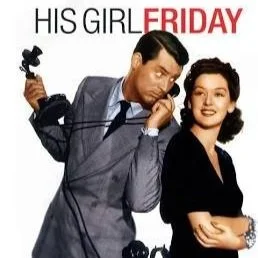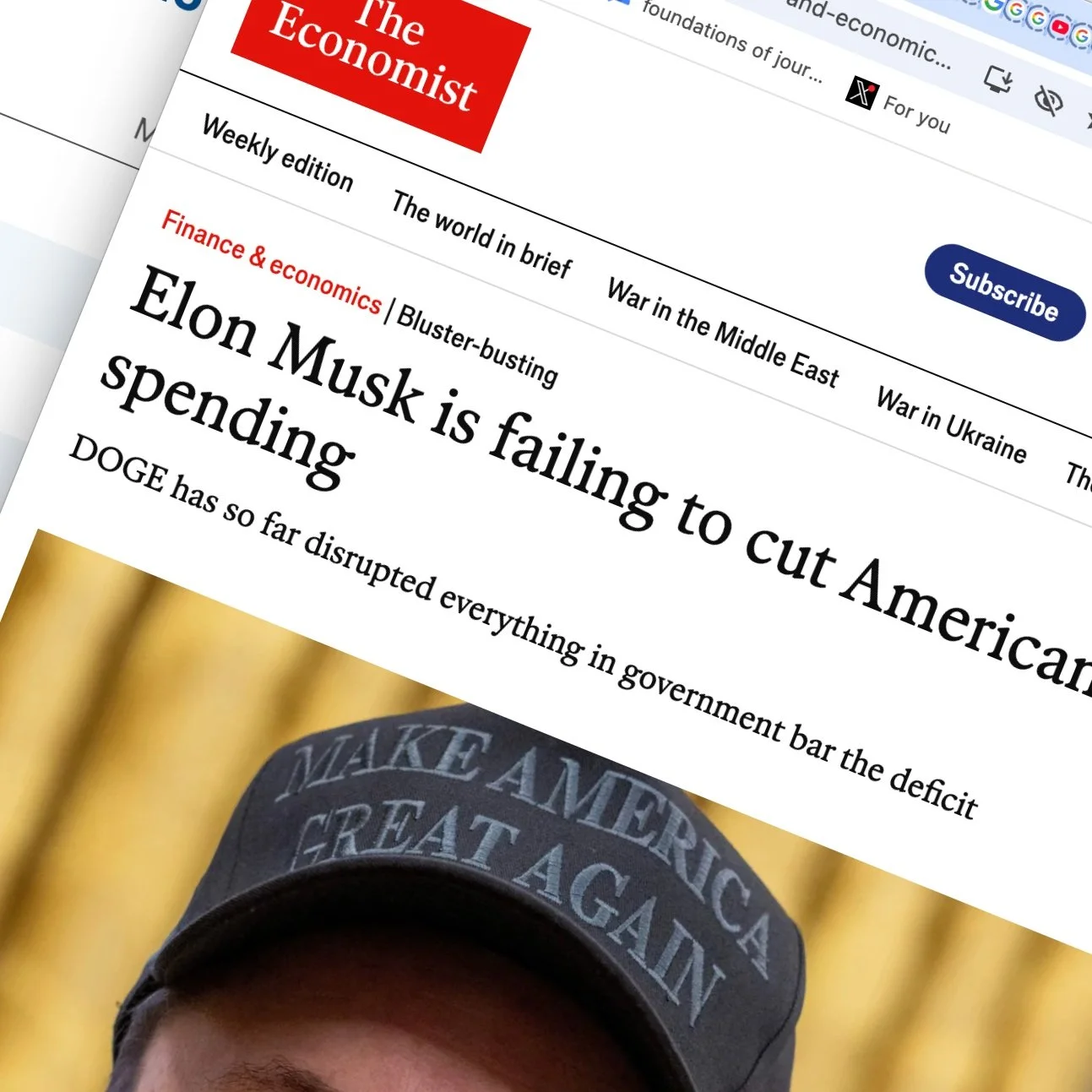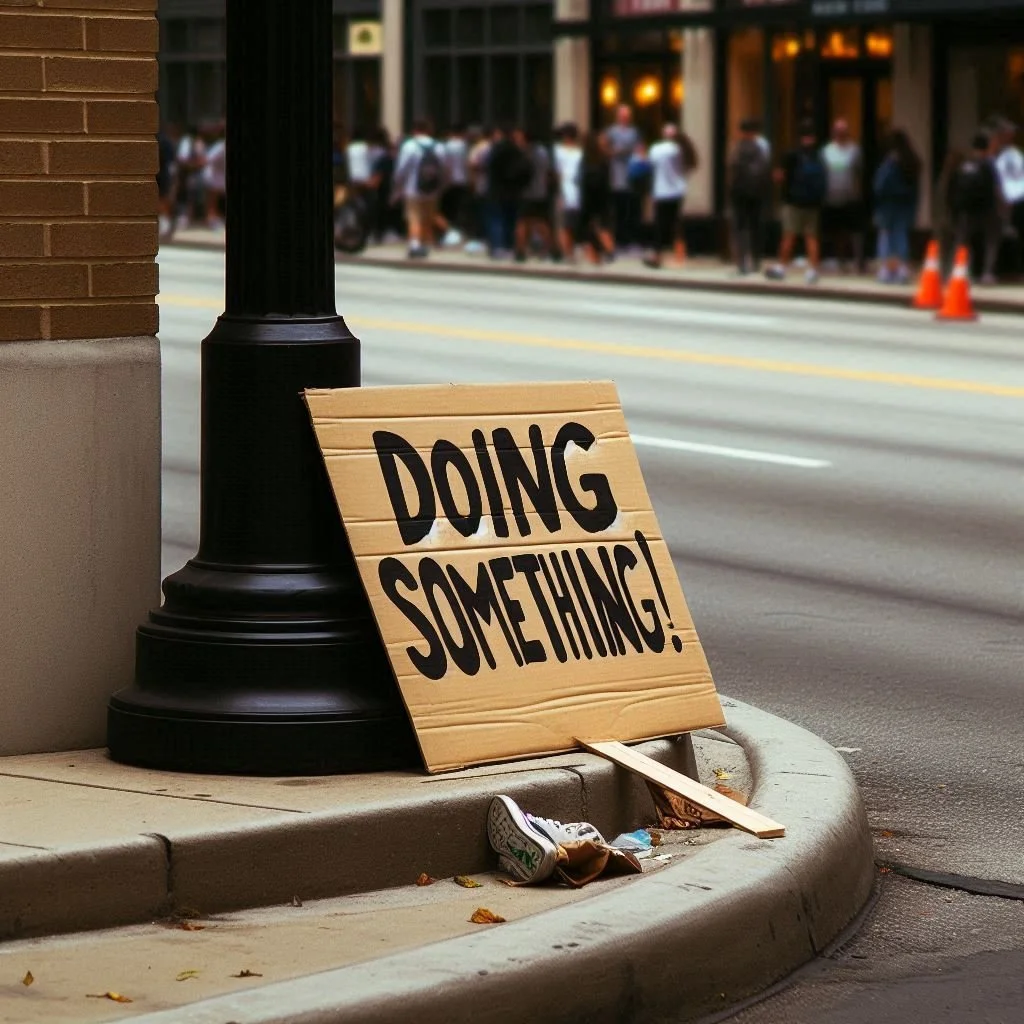Timothy Snyder on Trump and Zelensky
Timothy Snyder, a history professor at Yale, has been among this country’s most eloquent and thoughtful defenders of human rights in recent decades. We found his concise response on video to the obscene performance in the Oval Office yesterday by the current president and his acolytes to be particularly important. It is taken from Prof. Snyder’s substack, to which you might consider subscribing. He encouraged people to share the video.
I never graduated from college.
Many people I know—maybe most?—assume I did. They assume a nice middle class, well-read, generally articulate, reasonably knowledgeable professional writer (that’s me, I think) who has worked for major publications and published a dozen or so books surely graduated from college.
But I never did, and nearing my 79th birthday, I’m wondering if I should be regretting that.
I mean, I could have graduated from college. I was probably smart enough. I just … well, never showed up for many classes. Back in my day, you really had to actually be there to pass the course. None of today’s remote learning stuff.
But instead of physically going to classes, I went to the college newspaper office. That became my education, my training ground, my obsession. I spent pretty much all my undergraduate time there, writing and editing and bullshitting and making friends for life. . . .
The Desegregation Penalty: Personal Histories of Integration's Pioneers
The children who were pioneers in the attempt to desegregate public education and exercise their right to attend school, to realize the promise of Brown v Board of Education, were met with persistent, violent white resistance in all regions of the United States.
This happened in our lifetime. Two centuries into the establishment of the republic, one century after the Emancipation Proclamation and 13th Amendment to the Constitution, six years after Brown, Black students in the latter half of the 20th century were subjected to collective disadvantage as schools and communities across America pretended to comply with the orders of courts at all levels of the judiciary.
But at the personal level, young people of color entered environments that were overtly and dangerously hostile. These courageous pioneers attempted to learn in schools that made little or no effort to welcome them and support them in becoming educated.
Here are some of their stories . . .
Doctor My Eyes…Sailing Through Cataract Surgery
Within 30 or so minutes of completing my first cataract operation last week, my wife Judy and I were enjoying a nice lunch—albeit sans alcohol, per post-op instructions.
All went perfectly, said my doc, and I now am eager to get the second one done and out of the way in May (my in-demand surgeon’s next available time.)
It is, by far the most common surgery performed in the U.S. and most of the world—three million procedures done in the U.S. each year, out of 20 million worldwide. It is particularly common for our age group—because in the U.S., nearly 1 in 5 people age 65 to 74 have cataracts that affect their vision. By the time they’re 80 or above, more than 50 percent of Americans either have cataracts or had surgery to remove them. …
Battles may be lost, but the fight continues
We seem to keep losing every battle. We have to keep believing we can still win the war.
Yeah, things are bad and they do seem to be getting worse. Pete Hegseth, Tulsi Gabbard, RFK Jr., Kash Patel, the Gaza travesty, the trashing of the Kennedy Center, the Ukraine sellout, the deportations, the indiscriminate firings, the cuts at the CDC and the NIH and on and on.
One after another, we fought for rationality, legality and common sense and we’ve been defeated. And yet, the war isn’t over. The battle goes on. It must. …
Favorite Films for Each Decade
If rock ‘n’ roll is the soundtrack of our lives, movies are the screen on which our lives are reflected. They show us what we’ve been, who we are and imagined what we could be.
But which movies playing on those screens have left the deepest impressions for our generation?
We asked long-time arts editor and film critic and historian Bruce Dancis to give us his highly informed takes, decade by decade, on those films that have had the most impact.
Here is the first in the series, on the 1940s.
—The editors
***
My assignment: Choose a movie from each decade of my life that has had the most personal impact. And since I’ve had a relatively long life, my editors and I have decided to run this article as a weekly series over the next few months, decade-by-decade, starting with the 1940s and ending in the 2020s.
These aren’t necessarily the “best” movies of the decade or the most innovative; they represent the films that resonated most with me, either from my initial viewing when they were released or when I first engaged with them in subsequent years.
I was born in 1948, so I didn’t see any of the 1940s films or most of the ‘50s films until much later. I’ve also cheated a bit by including brief mentions of five additional movies per decade that were close behind my main selections, and citing five more “How could he leave out?” films. …
On Being Not There
This is my second visit to Costa Rica. On my first—a quarter century ago—I drove through the country without stopping for anything but gas, food and a huge backup on the Pan-American Highway (long story).
I now realize what a mistake that was. The people are wonderful. The animal life is as varied and unusual as anywhere I’ve been—besides, of course, Africa or the national park formally known as Denali. And, although while here in Costa Rica, I’ve only entered one of the available oceans—the larger one—the swimming has been perfect.
However, as good a time as I’ve been having in Costa Rica, I realize there is a sense in which . . . I’m not here. (I hear those three words as The Zombies might have sung them.) I’m not here in the way that I might have been here had I been smart enough to get out of the car 25 years ago.
For I dive significantly less deeply into foreign places now than then.
For a bunch of reasons . . .
under the ice, waiting
Part of our continuing series on regrets. Click here and here for previous stories.
Unlike so many younger people, I didn’t grow up knowing I was queer. It was less common to be aware of things like that in the 1950s. Also, although I knew I was different from other kids, our family was one of those with the wrong kind of secrets. That was enough reason to feel different.
I was a literate child—awkward, silent and always with my face in a book. I read indiscriminately, from my parents’ crammed bookshelves, the children’s section of the library and the regular fiction section.
After school, my sister and I would walk down the hill to the library. I would pick a book off the shelf, pretty much at random. We would take our books and sit in the heavy wooden chairs at the heavy wooden tables polished to a whisper, with the faint smell of bubblegum and paper like dried grass on a hillside, and the golden sunlight that streamed in the windows at a slant, crowded with dancing dust motes. A safe place, full of books.
I knew about sex. …
we’ve always been here
Trump and his cronies don’t care about facts and science in their queer bashing, but we’ve always been here and we aren’t going anywhere.
Science writer Josh L. Davis leads LGBTQ+ tours at the Natural History Museum in London. His charming and informative presentations have become popular on YouTube and they have inspired “A Little Queer Natural History” (University of Chicago Press, 128 page), a beautifully illustrated book celebrating the “non-heteronormative biology and behaviors that exist in the natural world.”
Gorgeous photographs accompany stories of hermaphroditic fish, lesbian gulls and male swan couples raising chicks, as well as spotted hyenas in female-centric colonies. Davis provides evidence of the prevalence of homosexual activity among gorillas, giraffes and sheep. …
An Invention That really transformed our lives
Google the greatest inventions of our time, say the last 75 years, and you’ll find all sorts of wonderful, important techy stuff. Stuff like the Internet, of course, and the integrated circuit, the smartphone, the MRI scanner, the laser, the personal computer, the Global Positioning System.
All great, all important, all have significantly changed the world and our lives. Transformative, all of them. We use them, we depend on them, but of course we have absolutely no idea how they work.
But what about the more mundane stuff that’s been invented during our lifetime, the simple things, the not-particularly-technical inventions that have simply made our day-to-day existence so much more pleasant? . . .
Keep Regret Buried Deep
As I head toward my 75th year of life I have been thinking a lot about the “what ifs.”
What if my parents had divorced before I was born? What if my mother had not died when I was 12 but lived to be a grandmother? What if I had been born a boy and been chosen to take over my father’s general contracting company?
What if I had drowned when I was three and had toddled into the ocean, fortuitously saved by my Auntie Peg? What if I had been a straight-lace instead of a hippie? What if I had married the first love of my life, or the second or the third? …
Part of our continuing series on regrets. Click here for previous story.
Don’t fire the guys collecting the money
Occasionally we excerpt something we come upon that might be of interest to readers of this website. We had not previously seen the substack published by Don Moynihan, a political science professor at the University of Michigan. Here’s how he describes his work: “I spend a lot of time studying, teaching, and thinking about how governments function and how to make them better.”
Prof. Moynihan also has proven quite good at understanding how governments can be made much, much worse.
The post from which we took this excerpt, DOGE Mismanagement Principles, also contains sections headed: “Don’t fire the guys taking care of the nukes” and “Don’t fire employees, unfire them, and then fire them again.”
Don’t fire the guys collecting the money
Governments can’t function without revenue, so ensuring that the agency that collects taxes can do its job is pretty fundamental to maintaining state capacity. . . .
Not Like Our Music: Kendrick Lamar and the death of Rock
In some ways Kendrick Lamar last Sunday was dressed more like me and my buddies in the 1960s and 1970s than were any of the 58 previous Super-Bowl halftime-show performers (some of whom, in fairness, were in marching bands).
Lamar was outfitted in blue-jean bellbottoms, sneakers, a black shirt, a baseball cap and a letter jacket. He had a raggedy, as best I could determine, beard.
And the performance Lamar gave—with Samuel L. Jackson as a black Uncle Sam, supposedly tasked with asking him to tone it down—seemed more angry and more political than any previous Super Bowl halftime show, angrier and more political than we had thought the billionaires who own the NFL would allow. He referenced jazz-poet and musician Gil Scott-Heron’s line that the “revolution will not be televised” but insisted that it was about to be. At one point an American flag, formed by dancers, was split in half by Lamar. . . .
The Best Way to Slow Trump’s Stampede
The moral and ethical crater that the Trump-administration bulldozer has dug through the heart of our democracy isn’t likely to concern his voters. They long ago bought into the propaganda that the "Deep State" stole the 2020 election. Many, and possibly most U.S. voters, also have swallowed the lie that immigrants = criminals.
Yet the resistance to Trump – Democrats, Independents and Never Trumpers -- must find a way to erode his less fervent support nationwide quickly if they hope to so much as slow this country’s march into autocracy and possibly worse. I believe there’s a path, but time is short.
And it’s a path requiring planning not righteousness, and it must be targeted to Republicans and Independents not just those already convinced of his malevolence. . . .
Trump’s foes won’t succeed by rallying in front of Washington, D.C., buildings. They won’t succeed by claiming the moral high ground. They won’t succeed by standing up for health, science or human rights. This is sad, but it is true.
However, those trying to stop the real steal – of our democracy – might succeed if they focus on what likely will be the growing economic pain of Republican voters in Red States. . . .
What Can We Do?
I’ve signed up to go to my first protest demonstration on Monday. I’ll stand on a corner waving a sign. Earlier this week, I made my first financial donation to a Trump-fighting group. I’ve started regularly calling the office of my (cowardly Republican) senator.
I’m beginning to try to answer the question, at least for me, of what can we do?
Of course, for these last four weeks, it’s been easier to say, what can we do? How can we possibly deal with the onslaught that seems never-ending? With the accumulating day-to-day nightmarish realities? The zone indeed has been flooded, and we have felt overwhelmed. Recent national surveys report that nearly half of those who identify as Democrats say they feel “exhausted.”
So, it’s been easy to tune out, which I have done. . . .
What Was My Hurry?
By Jane S. Gabin
Regrets. I’ve had a few.
One would be rushing to complete my education. For some reason, I was raised to believe that it was better to graduate in three years rather than in four. So, at the age of 27, I found myself with a Ph.D. (in English) but little experience.
My culture also said, if you are not married, then nothing else matters. So, I stayed in school forever, it seemed, waiting for something or someone miraculous to occur.
I remember the day I was standing at the kitchen window contemplating my future. And I wept. I didn’t know exactly what I wanted, but I knew what I didn’t want. I was on track to become a secondary-school English teacher; somewhere along the way I was expected to “meet someone” and marry, then have children.
But I saw myself pushing a baby carriage on the streets of Flushing, NY. And that was my vision of hell. . . .
Democracy: A Song
Who would have thought it might seem necessary to stand up, speak up—and sing out—to protect democracy here, in the United States of America?
Words and music by Bill Weeden, David Finkle and Sally Fay.
Click here to view.
Hold Hands and Make It Through
I was raised by wolves. My older brother, Charlie, was a psychopath, and my parents, with the support of a lot of alcohol, went to some trouble not to notice that. So, for my entire childhood I was at the mercy of a soul-less monster who liked to control and hurt and rape more vulnerable people. Particularly his two little sisters.
Our parents, who should have protected us, instead turned their faces away. I understood this as permission. We learned very early that there was no use in complaining. Our parents would just laugh at us, would deny that anything was happening. “Go ahead,” they were telling him. That’s what their denial meant. “Go for it. Just do it where no one can see.”
And he did.
Charlie would kill us, eventually, if we didn’t get away from him. I knew this. I also—didn’t know. . . .
Have Tech? Make Sure You Have Kids (or AI)
A couple of weeks back, I had a computer issue. I don’t remember now exactly what kind of computer issue it was, but it was something I couldn’t fix on my own.
Although I tried. I re-booted, several times. I Googled answers, followed prompts, checked in with support groups, went to help websites, had a chat with an automated chatbot and still wasn’t able to fix the problem. I had considered downloading ChatGPT, but instead I took the easier way out: I did what I had promised myself I wouldn’t do but I’ve done time and time again: I asked my kid.
Listen, don’t judge me. I am, in fact, better with tech than a lot of people my age. Well, some people my age. . . .
Rap and Rock: Listening to Each Other’s Music
Melvis Acosta is a journalist, friend and former student of mine. (He helped Neil Offen and me set up this website.) Both Melvis and I happen to be serious, exuberant, music lovers. But—there being a half-century between us—we are serious and exuberant about very different kinds of music. So we decided—in the name of open-mindedness, conciliation and respect—to each give a serious listen to an album selected by the other person, to which we had not before listened.
I proposed that Melvis undertake Bob Dylan’s 1965 album, Highway 61 Revisited. Melvis suggested that I dive into To Pimp a Butterfly from 2015 by Kendrick Lamar. This was before the recent Dylan film, A Complete Unknown, and before Lamar’s recent Grammys triumphs. And we are posting this just before Kendrick Lamar’s performance half-time at the Super Bowl.
Click here for an edited version of the online conversation that ensued,.
— Mitchell Stephens





















